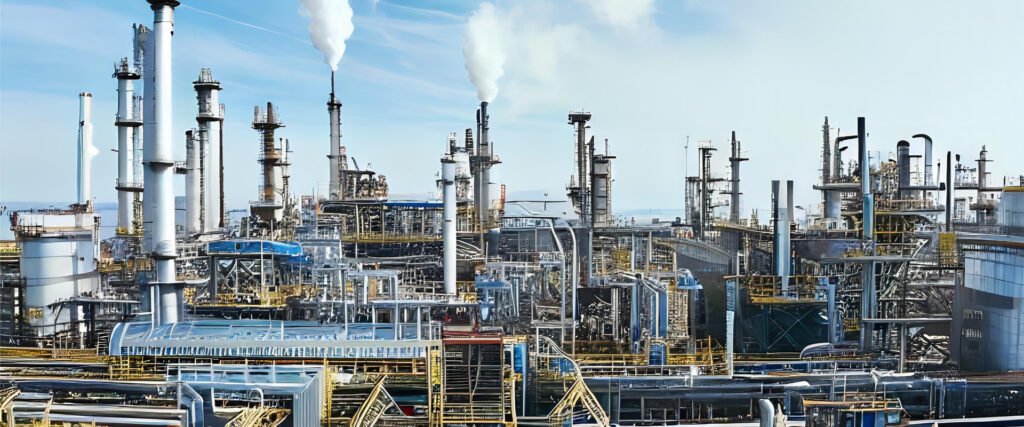Your cart is currently empty!
TEL:08615998857658

Sulfurized Isobutylene-high pressure
In the field of lubricants, sulfurized isobutylene can be used as part of the additives to improve the performance of lubricants.
Description
| Vulcanized isobutylene is a synthetic rubber commonly used in the manufacture of rubber products. In the field of lubricants, sulfurized isobutylene can be used as part of the additives to improve the performance of lubricants. Here are some possible purposes and effects:
Enhanced antioxidant properties: Sulfurized isobutylene can be used as an antioxidant additive in lubricating oils to help prevent oxidation of lubricating oils under high temperature and pressure and extend the service life of lubricating oils. Improve anti-wear properties: Vulcanized isobutylene can improve the anti-wear properties of lubricants and reduce friction and wear between mechanical parts. Improved anti-corrosion performance: Adding sulfurized isobutylene can also improve the protection of lubricants on metal surfaces and reduce the risk of corrosion and rust. Enhanced anti-emulsification performance: In some special applications, sulfurized isobutylene can be used as an anti-emulsification additive for lubricating oils to prevent the lubricating oil from mixing with water to form an emulsion. Improved high-temperature stability: Vulcanized isobutylene helps improve the stability of lubricating oils under high-temperature conditions and prevents the oil from losing performance due to rising temperatures. The specific formulation and use of added sulfurized isobutylene will vary depending on the type of lubricant, its application, and the manufacturer’s requirements. Before using any additives, it is best to consult the lubricant manufacturer or a professional engaged in relevant research and development to ensure correct use and best results. |
Sulfurized isobutylene (SIB) is a lubricant additive used in various applications, particularly as an extreme pressure (EP) additive in engine and industrial oils. When used in a high-pressure context, it offers specific benefits and drawbacks that need to be considered.
Properties:
- Excellent EP protection: High-pressure sulfurized isobutylene forms a strong film on metal surfaces, preventing scuffing and welding under extreme pressure and contact. This is crucial for protecting gear teeth, bearings, and other components under heavy loads.
- Anti-wear: It also provides some anti-wear protection, reducing friction and wear on metal surfaces.
- Thermal stability: Compared to some other EP additives, SIB can offer good thermal stability at high temperatures.
- Cost-effectiveness: It can be a relatively cost-effective option compared to some alternative EP additives.
Drawbacks:
- Environmental concerns: SIB contains sulfur, a pollutant that can contribute to air and water pollution. Stricter regulations are driving the development of alternative EP additives with lower sulfur content.
- Corrosion potential: In some cases, SIB can contribute to corrosion of certain metals, requiring careful selection and compatibility testing.
- Limited solubility: SIB can have limited solubility in some base oils, requiring specific blending techniques.
- Odor: It can be associated with a strong sulfurous odor, which may be undesirable in some applications.
Applications:
- High-pressure gear oils: Commonly used in gear oils for transmissions, differentials, and other high-pressure applications.
- Industrial greases: Used in greases for bearings and other components operating under high pressure and load.
- Low-power engines: In some cases, SIB might be used in low-power engines as a cost-effective EP additive.
Alternatives:
- Phosphorus-based EP additives: Offer similar EP protection but can also have environmental concerns due to phosphorus content.
- Ester-based EP additives: Biodegradable alternatives with good EP performance but can be more expensive.
- Advanced lubricant formulations: Modern lubricants often use combinations of different additives, including ashless EP agents, to achieve optimal performance without relying solely on sulfur-based additives.
Choosing the right lubricant:
Selecting the right lubricant with high-pressure SIB depends on various factors, including:
- Application and operating conditions: Pressure, temperature, load, and specific requirements of the machinery.
- Compatibility: Compatibility with other lubricant components and metals involved.
- Environmental regulations: Sulfur content limitations in your region.
Consulting with a qualified lubricant specialist or tribologist (friction and lubrication specialist) can help you choose the most suitable lubricant with the appropriate EP additive for your specific needs.
I hope this information helps! Feel free to ask if you have any further questions about sulfurized isobutylene or other lubricant additives.







Reviews
There are no reviews yet.